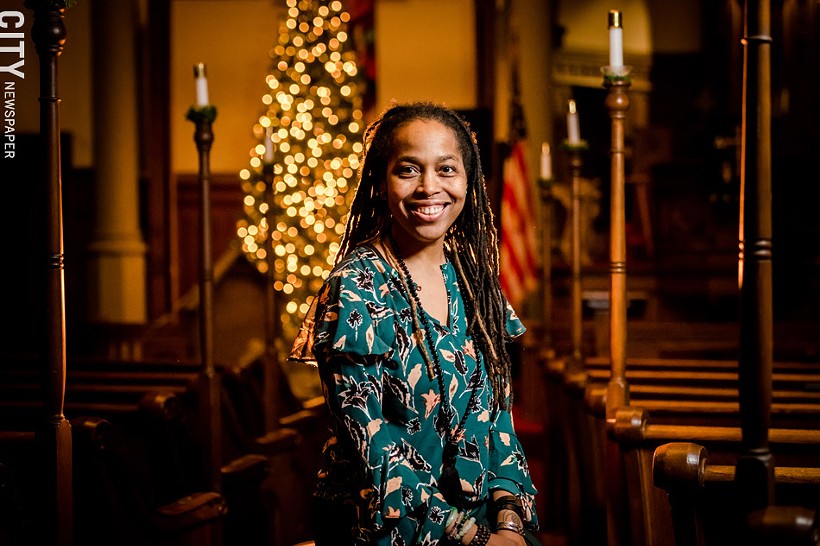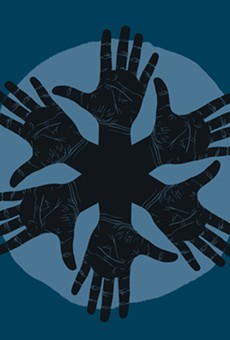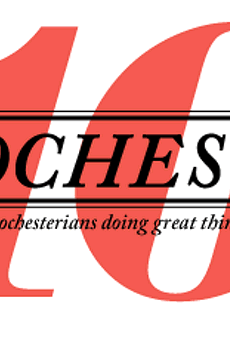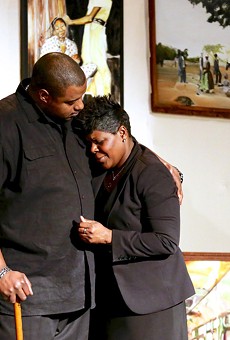Page 3 of 11

- PHOTO BY JOSH SAUNDERS
- With her ministry and yoga center, Imani Olear is helping people heal their human spirit.
IMANI OLEAR | BODY AND SPIRIT
BY TIM LOUIS MACALUSO Imani Olear has a tattoo on her body of a bird flying free from its cage. It's in memory of her mother, who suffered from schizophrenia through much of her life, she says. One of her favorite memories of her mother was of the time she gave Olear and her siblings snack-size packages of crackers as gifts. Each child received a package, and Olear's mother kept one. It was unusual, but endearing, Olear says.
"It's a wonderful metaphor: Give from your heart, but it's okay to keep something for you," Olear says. "I still see her in beautiful glimpses of light."
Though Olear remembers her mother mostly as a person living with mental illness, she taught her everything she knows about compassion and kindness, she says.
Olear, who is 48, moved from Columbus, Ohio, to Rochester 12 years ago, and since then she's been busy spreading her own brand of compassion and hope. She's a pastor at Evangelical Lutheran Church of the Reformation and founder of Yoga 4 a Good Hood – a non-profit that offers the physical and mental health benefits of yoga to people who often can't afford it.
Through her ministry and yoga, much of Olear's work is focused on healing the human spirit, she says. Many of the people she meets are suffering from addiction, abuse, and severe stress.
"Yoga is not about touching your toes," she says, "it's about ending the constant chatter in your brain."
She strives to help people shed their fears and insecurities and embrace who they are instead of trying to conform, which she calls wearing a mask.
At one point in her life, "I chose to wear masks, too," she says. For a while, she says, she turned to stripping and sex to pay her bills. There was also the boyfriend who sold drugs.
And she lost her first congregation in Rochester trying to model what she thought others expected of a pastor, she says.
"I made all of these mistakes," Olear says. "But after all of that anxiety and tension, I realized I fit just fine as I am. I'm good even with all of the shit I've done in my life."
It's a message she hopes resonates through her work, particularly with the women she meets who are often living in poverty, are incarcerated, or are in an abusive relationship.
"Many women in poverty are not just sexualized," says Olear. "Too often they are told what to do and how to be. You're a commodity; that's your worth."
Frequently, the women Olear meets who have spent time in prison will say it was because they did something illegal on behalf of the men in their life. One woman told Olear that she had never in her life been touched by someone who wasn't expecting something in return.
"Our deepest fear is that we are inferior," Olear says. "Most people living in poverty are also dealing with sexism, racism, classism, and all those other isms, and they never hear that they are powerful. When that happens to you and you believe it, you never get the opportunity to be you."
Related The Rochester 10: Behind-the-scenes Rochesterians doing great things that you should know about






